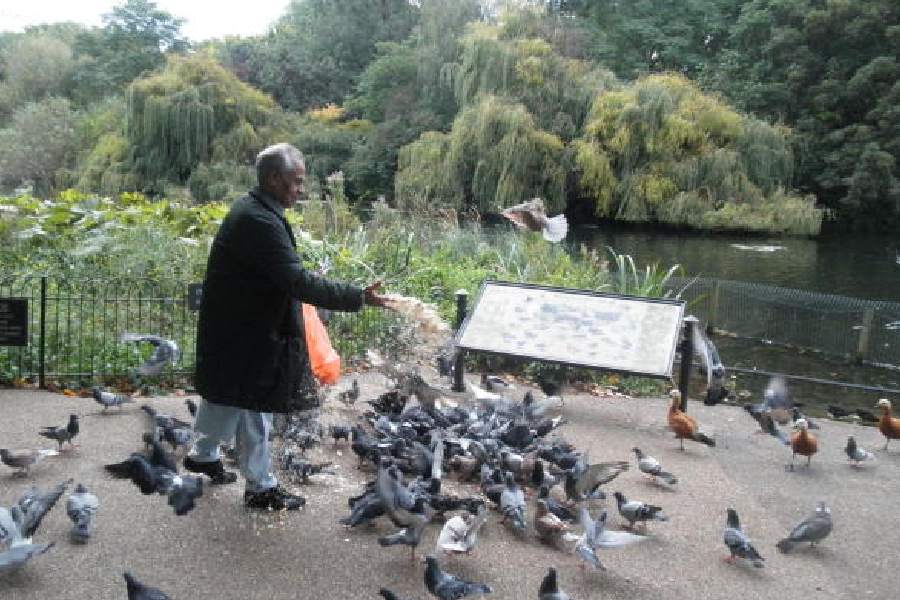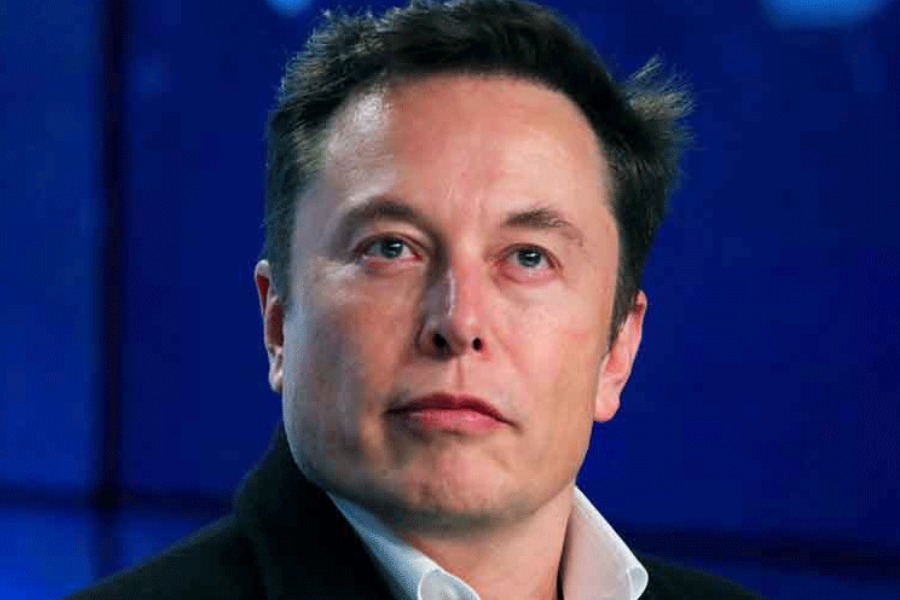Srichand Parmanand Hinduja, who died in London on Wednesday, aged 87, built one of the world’s most successful business dynasties that was valued last year at £30.5 billion, making them the richest family in the UK.
Though he was one of the richest and most successful tycoons of recent times, I found him to be a remarkably unassuming man. He would call me up for no reason at all just to have a chat, and often invite me to have a brisk walk with him in St James’s near his London residence — invariably at dawn.
Thousands of birds would recognise him and flutter round him for he came with a paper bag full of breadcrumbs. As squirrels ran up for peanuts, he would tell me of his business philosophy.
Although quite often he sounded eccentric, I decided there was method in his madness. “I learnt about investment from squirrels,” he once told me. “If you give them two nuts, they will bury one — they won’t eat both of them.”
Usually these walks ended with breakfast at his apartment in Carlton House Terrace. He decided to tell me his life story — which he did over 30 sessions, each lasting two to three hours.
He was born in November 28, 1935, in Shikarpur, Sindh, in what is now in Pakistan, and tried to follow the principles of his father, Parmanand Deepchand Hinduja, who was born in Shikarpur on November 25, 1901. In 1914, his father moved to Bombay to begin a business which developed over more than a century.
SP — as Srichand was universally called — would repeat his father’s mantra, “Work to give,” and also “Think local, act global.”
I believe he had a private jet and a Rolls-Royce but I did not see him use either.
At last year’s Hinduja Diwali party, King Charles sent his personal greetings. Out of the 48 countries in which the Hindujas do business, 22 were represented by their ambassadors or high commissioners. The Hindujas employ 100,000 people. Despite being devout Hindus, SP has seen to it that the family retains cordial links with the Islamic world. His home was open to all.
There was a time when the Hindujas were cold-shouldered by British government ministers over the “passports scandal”. Did they use undue influence to acquire British passports? But all that has faded away as has their alleged involvement in Bofors.
The Hindujas have often been called “controversial” and “secretive”. SP once told me: “Before buying something we study the situation and get all the information (i.e. “due diligence”). Then when we move, we strike like lightning and none can stop us.”
He also indicated he was old fashioned when it came to bringing daughters into the business. It was “sons only” because a son-in-law could never be part of the inner circle.
The dynasty will continue to be run by SP’s brothers, Gopi, 83, who is also based in London, Prakash, 77, who lives in Geneva, and the youngest, Ashok, 73, who is based in Mumbai. The business now takes in everything from banking to oil, real estate, defence and the automotive sector (Ashok Leyland in India). The latest project is the luxury Raffles hotel and residential complex in Whitehall, a conversion from the Old War Office. The third generation, Gopi’s sons, Sanjay and Dheeraj, Prakash’s Ajay and Ramkrishan (“Remi”), and Ashok’s Shom, run their respective sectors with guidance from their elders.
The Hinduja family was once famed for its unity. But once SP fell ill, his daughters, Shanu and Vinoo, took legal action over the family’s creed, “Everything belongs to everyone and nothing belongs to anyone.”
I also talked to SP about the tragedy of his son, Dharam, whose marriage to Ninotchka Sargon, a Roman Catholic Australian, at Chelsea Register Office in January 1992, was not accepted by the family. He died after setting himself alight in a hotel room in Mauritius. SP’s wife, Madhu, passed away earlier this year. Since Dharam’s death, the family has been far more relaxed about letting the new generation choose their partners.
Although the family had links with the UK going back to 1964, the Hindujas decided to make their home in London in 1979 after the Iranian revolution. Previously, Teheran had been the most important overseas base for them.
I was entertained by SP’s anecdotes. Sometimes, I thought he was embroidering his tales. He told me Princess Diana had been over for dinner. On another occasion, SP said he had taken Michael Jackson to a Hindu temple and then brought him home for a vegetarian meal which the American star had relished. Later, SP showed me the photographs and a thank you note from Diana.
The story goes that when Iran was once critically short of onions, the Shah turned to the Hindujas. Fortunately, there was a glut in India that year — and the Hindujas were able to deliver. Later, SP said that the family managed to sort out differences between the Shah and Indira Gandhi. SP urged the Indian Prime Minister to send mangoes as a peace offering to the Shah. It all ended with the Shah agreeing to give much needed oil at concessional terms to India.
When Concorde began flying Heathrow-New York, SP would take extra portions of vegetarian food. When other tycoons protested to the air stewardess, “I don’t want Lobster Thermidor; I want what he’s having,” SP would share his food saying, “Please take,” and also pass on his business card. When the late Queen invited him to lunch at Buckingham Palace, he apparently insisted, “Your Majesty, I’ll come so long as I can bring my own food.” She agreed.
SP would often talk fondly to me about Raj Kapoor, who often arrived having imbibed generously of the amber liquid. A recent book, Hindujas and Bollywood, confirms what SP told me. The Hinduja holding company in the UK is called “Sangam Ltd” after the 1964 Raj Kapoor hit film of that name. SP took him to Teheran where the star and the film was a huge hit.
SP, who had paid £100,000 for the distribution rights, claimed he sat in the studio with Raj Kapoor and drastically reduced Sangam’s 4 hours and 15 minutes length. This is what SP told me: “In the middle of the edit, Raj Kapoor clutched his head in despair. Soon, he was holding the left side of his chest as though in pain. ‘Sribhai,’ he said to me, ‘what is going to happen to my film?’
“I turned to him: ‘I have invested heavily in this film. You are holding your chest. What should I hold?’ In the end, Sangam proved a blockbuster.”












